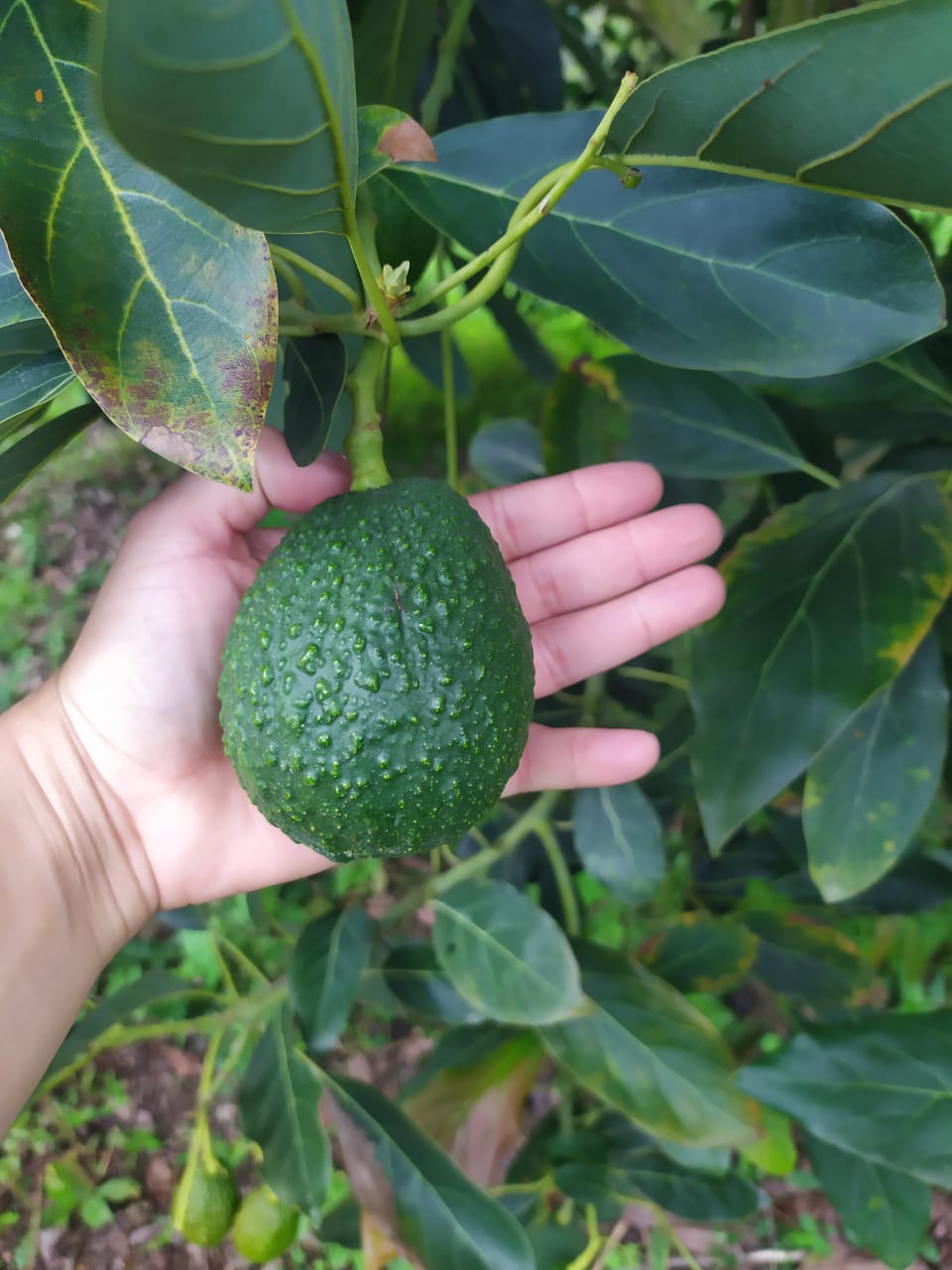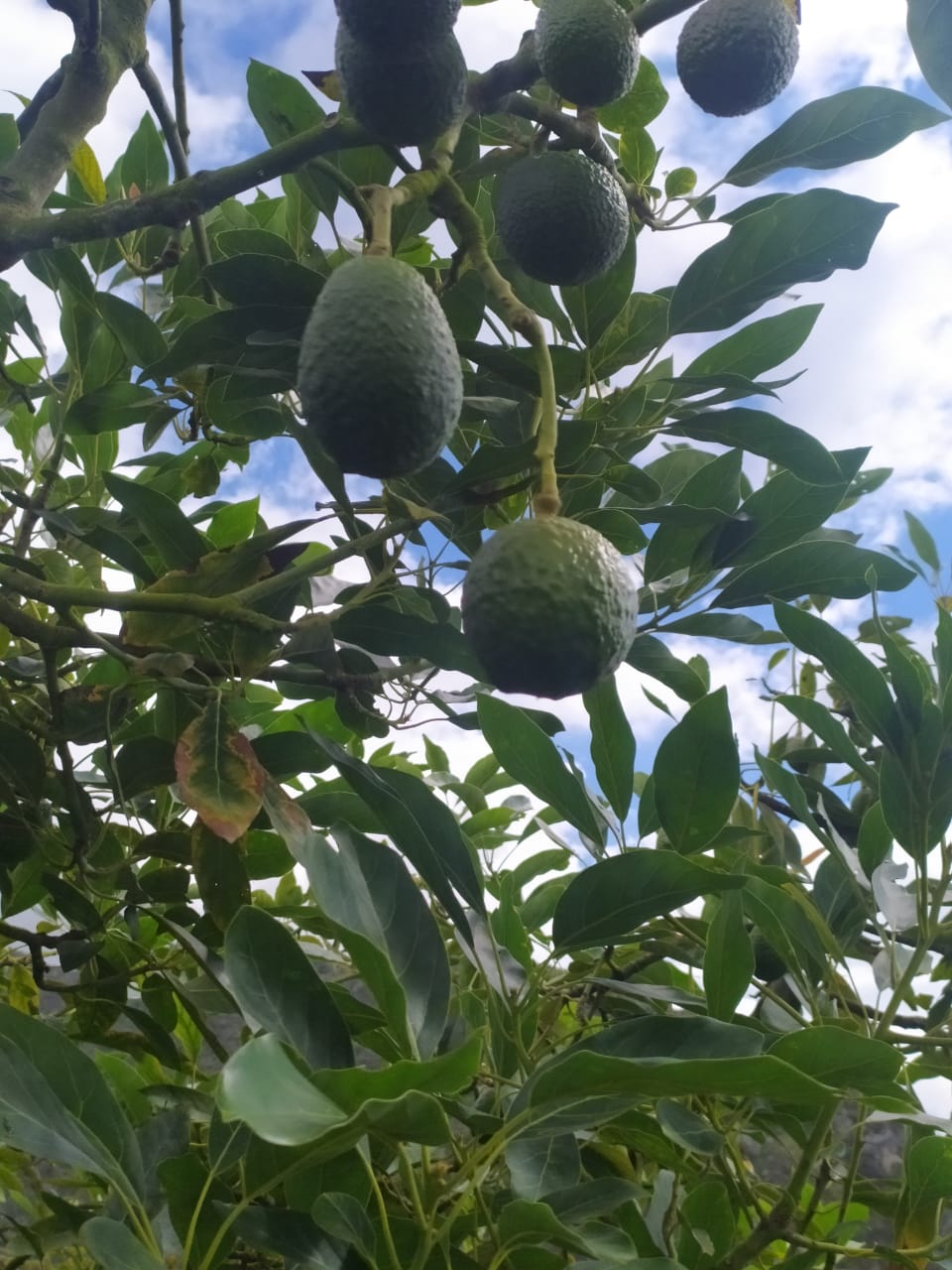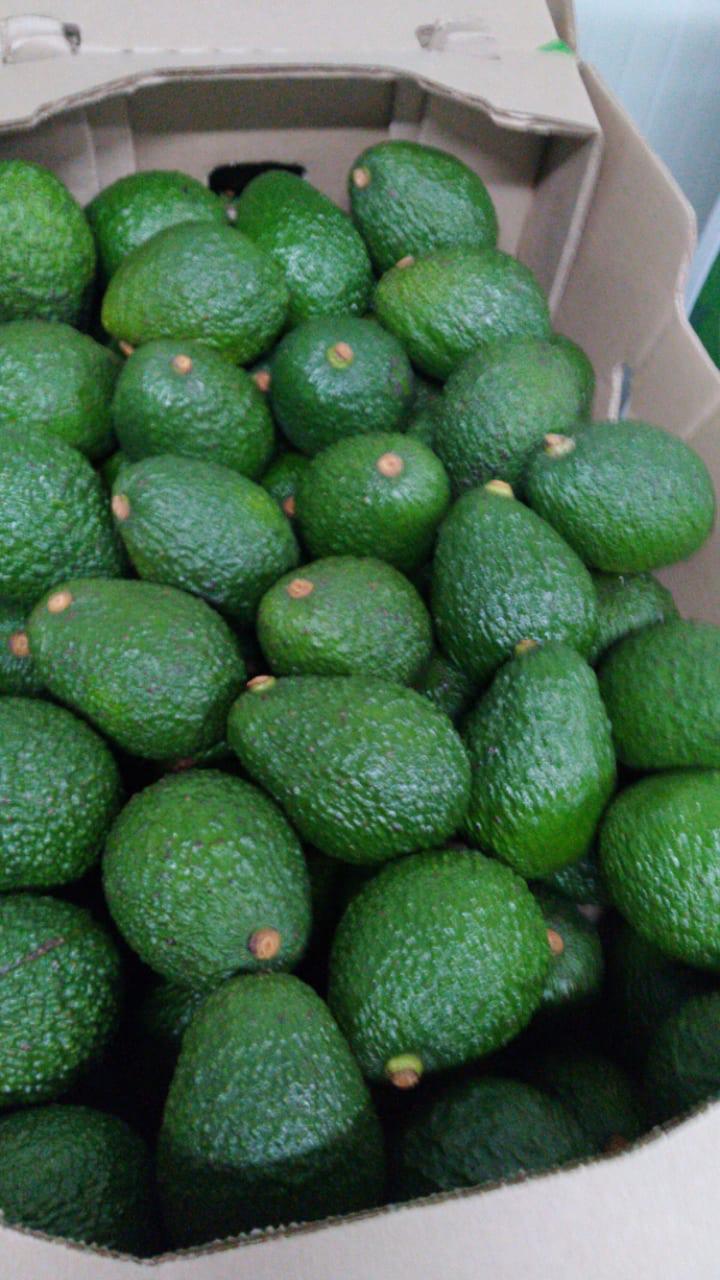AVOCADO HASS -PERSEA AMERICANA
Avocado Hass (Persea americana), also known as avocado (Quechua), cure, avocado (English) or abacate (Portuguese) is a tree with edible fruit belonging to the Lauraceae family, one of the oldest among the flowering plants.
Although it is commonly considered a vegetable, the fact is that, technically, the avocado is a fruit. Specifically, it is a type of berry, which is a simple ovary wall ripens whose fleshy fruit, becoming a food. Broadly speaking, fruits are characterized by having a layer of peel or skin, usually lasts, an intermediate zone is commonly eaten and is usually fleshy and finally a box or container where the seeds are stored fruit.
The avocado is a fleshy exotic fruit obtained from the tropical tree of the same name. In some parts of South America known as Palta. It has dimensions of 5-6 cm length. The normal weight ranges from 200-400 g, although they may be pieces of up to 2 kg. The crust is thick and hard green whose tone depends on the variety. The pulp is colored oily cream to yellowish green, with a nutty flavor similar to. It has a unique rounded seed light brown and 2-4 cm.
Why is it important avocado consumption?
For his contribution in oleic acid has beneficial cardiovascular effects, lowering plasma cholesterol levels. It contains a significant amount of minerals and vitamins necessary for the proper functioning of the body.
Besides the above, because:
- An avocado contains more potassium than a banana
- It is the fruit provides more protein. It contains 18 of the most important proteins that our body needs
- It contains oleic acid, a monounsaturated fat which can help reduce cholesterol
- Help prevent cardiovascular diseases
- Improves hair and skin
- Prevent heart disease and strokes
- Because of its high value of folic acid, significantly improves heart health
- It is a food rich in vitamins and minerals
- It is a rich source of monounsaturated fatty acids such as oleic acid, which provides significant protection against breast cancer
- Contain carotenoids and tocoferole, consumption inhibits growth of cancer cells Prostate
- Helps prevent oral cancer
Sizes:
From 18 to 32
Country of Origin: Colombia
Dry Matter: 21% min – 28% max.
Certifications: Global Gap and ICA (Colombian Agricultural Institute)
Quality criteria:
Free of quarantine pests • No mechanical damage
Tolerance of 15% of lenticellosis • Tolerances of 10% to the sun • Tolerance of 10% of the presence of Marceño • Free of transfers of agrochemicals not allowed • Minor deformations • Damage by Thrips less than 10%.
Packaging: in 2,240 cardboard boxes or plastic baskets of 10 kg, sizes 18 to 32
NUTRITIONAL CONTENT
| CONTEN PER 100 GRS PULP | UNITS |
| Calories | 134 Kcal |
| Proteins | 1,3 gr |
| Total Fat | 13,8 gr |
| Saturated AG | 2,9 gr |
| Monoinsaturated AG | 8,6 gr |
| Poliunsaturated AG | 1,7 gr |
| Carbohydrates | 1,6 gr |
| Fiber | 2,4 gr |
| Sodium | 4 mgr |
| Potasium | 320 mgr |
| Calcium | 8 mgr |
| Magnesium | 18 mgr |
| Phosphorus | 28 mgr |
| Iron | 0,3 mgr |
| Copper | 0,13 mgr |
| Zinc | 0,3 mgr |
| Chloro | 4 mgr |
| Manganese | 0,1 mgr |
| Vitamin B | 0,46 mgr |
| Falata | 8 Ug |
| Niacin | 1 mgr |
| Vitamin C | 4 mgr |
| Pantothenate | 0,78 mgr |
| Biotin | 2,6 Ug |
| Vitamina A | 19 Ug |
| Vitamin E | 2,27 mgr |

Exportropic Aviability of Avocado Hass during the year
| HIGH | APRIL-NOVEMBER |
| MEDIUM | FEBRUARY, MARCH |
| LOW | DECEMBER, JANUARY, FEBRUARY |




